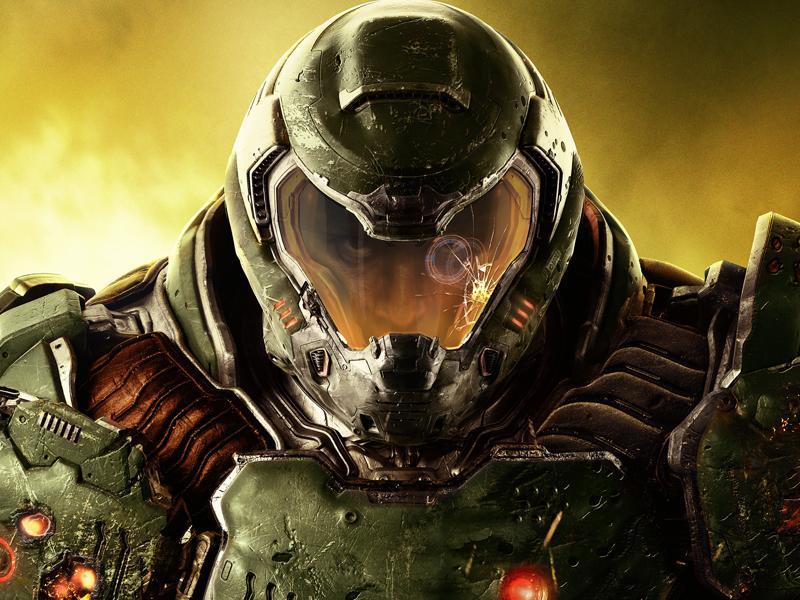The half of it: Hits and misses in the world of tech in 2016
From the Doom reboot impressing fans and critics alike to the failure of the Freedom Phone, a look at the hits and misses from the world of technology in 2016, so far.

Six months into 2016, and there's been a fair share of launches and releases in the tech world. We look at what worked and what didn't despite generating plenty of buzz.
What worked
Doom reboot: Donning the name of its original 1993 franchise ancestor, the 2016 reboot shrugged the horror aspirations of Doom 3. The result was a game with pulsating, fast-paced demon slaughter. Critics and players lapped it up, and the title topped gaming charts across the world.


VR headsets arrive: Technology enthusiasts are still waiting for the Google Glass to make a mark, for 3D printing to change lives and for hoverboards to take off. The hype around virtual reality (VR) headsets, however, is not misplaced. According to the latest data from research firm Strategy Analytics, revenues from headset sales alone are expected to generate $895 million before the end of 2016.


Video gains traction: With live streams, gifs, video comments to Facebook posts, Snap Stories, virtual reality and 360 videos, the tech-savvy were spoilt for choice when it came to experimenting with video this year.


Read: Facebook Live to soon have Snapchat-like filters
WiFi at Mumbai's railway station: On January 22, Mumbai Central, which is on the city's western line, became the first station in the country to get Google's free, high-speed WiFi.


Netflix in India: The video-streaming service made its way into the country. Initially, there were questions about whether it will work on the low bandwidth that is generally available in India, if censorship rules will affect what is shown and the availability of local content. But Netflix's entry was, overall, well-received.
What didn't


Video game adaptations flop: Hollywood has a long history of turning good video games into bad films. This year was no different, so far. Movie adaptations of Angry Birds and Warcraft did average business at the box office, and the wait continues for video game enthusiasts hoping to see a big-screen version of their favourite title.


Apps, trackers not reliable: Fitness enthusiasts were in for a jolt when reports emerged that trackers and apps were not as accurate as they claimed to be. While a study by the University of Toronto, Canada, warned that fitness apps have an "unacceptable error percentage when compared to the pedometer", another by Lancaster University, UK, said there was "no empirical evidence" to back claims that trackers lead to long-term well-being.
 ₹39,000. " title="Apple launched what was supposed to be its "cheaper" iPhone for ₹39,000. " class="lazyload">
₹39,000. " title="Apple launched what was supposed to be its "cheaper" iPhone for ₹39,000. " class="lazyload">

iPhone for ₹39,000: Apple announced its iPhone SE in March. The 4-inch device, which looked like the 5s but with a few additional features, was priced ₹39,000 in India. Prospective buyers were confused as the "cheaper" phone cost more in the country than in the US and many Apple markets. The iPhone 6 (16GB), post a price cut, began retailing at ₹35,000 at the same time, adding to the confusion.


Nintendo faces failure: Nintendo entered the mobile game market in March with Miitomo. It was downloaded more than three million times. But users either couldn't understand how the game worked or lost interest. In May, a Survey Monkey report stated that the game's average users had nosedived 74% from its peak.
Read: Ringing Bells says 2 lakh 'cheapest' phones ready, to launch HD LED TV


Freedom Phone: In February, Ringing Bells announced the Freedom 251. Its price, ₹251, got the launch attention, as did the controversies around it. Reports questioned the subsidy of the product (manufacturer Adcom claimed it cost `3,600) and if customers, who registered to buy the device, would even get a phone.
Catch all the Latest Tech News, Mobile News, Laptop News, Gaming news, Wearables News , How To News, also keep up with us on Whatsapp channel,Twitter, Facebook, Google News, and Instagram. For our latest videos, subscribe to our YouTube channel.































